
Customs procedures in Iraq: essential for successful trade.
The first step in customs clearance is to submit a customs declaration form, which includes details about the imported goods, such as description, quantity, value, country of origin, and other relevant information. The declaration is typically submitted electronically through the Automated System for Customs Data (ASYCUDA) platform. Certain goods may require import licenses or permits from relevant Iraqi government authorities. These licenses are obtained before the goods are imported and must be presented to customs during clearance. The specific requirements for licenses or permits vary depending on the nature of the goods being imported.
Various documents are required for customs clearance, including the commercial invoice, packing list, bill of lading or airway bill, certificate of origin, and any applicable import licenses or permits. These documents should be accurate, complete, and in compliance with customs requirements. Customs clearance involves paying various fees and charges, including customs processing fees, storage fees (if applicable), and any other administrative fees related to the clearance process. These fees vary depending on the nature and value of the imported goods. Once the customs procedures are completed, and all duties, taxes, and fees are paid, the goods are released by customs. The importer can arrange for the transport and delivery of the goods to their intended destination within Iraq.
For example, because Iraq's political system is federal and the provinces have special powers, it is sometimes observed that commercial law is enforced in one province but operated differently in other provinces. Moreover, in many cases, the laws of the central government of this country are different from the local government of the Kurdistan Region and operate in two different ways. Such restrictions will only be lifted if you consult someone who knows the way and the well at the beginning of the journey. In general, the problems of exporting to Iraq can be summarized in several general areas:
- The laws and the difference in their implementation in the provinces
- Businessmen are not familiar with the cultural and political context
- Security problems in certain areas
- Differences in trade regulations in Iraq and the ethnics
Trade with any country requires some legal documents and licenses, of which exports to Iraq are no exception. On the other hand, the documents required for export to Iraq may change over time due to changes in the laws of this country. Having a list of goods and their specifications. Regarding the necessary documents for export to Iraq, there may be other cases and options that will vary depending on each product or product. However, in general, you usually need to prepare some documents and permits, including:
- Business card
- Having environmental standards
- Licensed by the Iraqi Standards Organization
- Obtaining a health certificate for food products
- Obtaining the necessary permits from the Customs and the Ministry of Silence
- Having a certificate of origin and sales invoice in Arabic and English
In Iraq, as well as in Iran, there are institutions, individuals, and organizations that can help you with exports and trade. In the table below, we have mentioned the list of these individuals and institutions. There are many trade problems with this neighboring country that have led many exporters and various companies to use business consulting in recent years. In this regard, in addition to private consulting companies, one of the official institutions related to trade with this country is the Joint Chamber of Commerce, Industries, Mines, and Agriculture of Iran and Iraq.
It has several commissions in the fields of energy, information technology, food industry, technical and engineering services, and the construction industry, tourism, and trade and commerce, and their meetings are held from time to time. However, access to these institutions and obtaining export advice to Iraq from them is associated with a certain complexity and bureaucracy, and most people are inclined to try other ways. And the cost of consulting them is usually very high. We offer you in-person and telephone advice on exporting to Iraq through the Business platform, which you can use at any time and place with the least cost and time with the services of expert consultants in this field.
Customs authorities determine the value of imported goods for customs purposes. The valuation is based on various factors, including the transaction value of the goods, freight and insurance costs, and any applicable adjustments as per customs regulations. Import duties and taxes are levied on imported goods based on their classification and customs valuation. The customs tariff rates can vary depending on the product category. Iraq utilizes the Harmonized System (HS) for product classification. Value-added tax (VAT) may also be applicable to certain goods. Customs authorities may conduct physical inspections of the imported goods to verify the declared information, assess compliance with regulations, and ensure that the goods match the accompanying documentation. Inspections can be random or targeted based on risk assessment.
-

Iraq"s trade landscape is shaped by its membership in the WTO and participation in regional agreements like GAFTA. The country maintains strong bilateral trade relations with neighbors such as Iran, Turkey, and Jordan, facilitating the exchange of goods and investment. China stands out as a major trading partner, supplying machinery and consumer goods while being the largest importer of Iraqi oil. India also plays a significant role, providing pharmaceuticals and textiles alongside substantial oil imports. The United States exports machinery and vehicles to Iraq, while South Korea invests in infrastructure projects. Despite extensive trade ties with Iran, data on this relationship is limited due to informal trading practices and sanctions. Iraq"s primary export remains oil, with China and India being key buyers. In 2018, Iraq"s exports were predominantly directed towards China (26.
25%) and India (36. 24%). On the import side, Iraq sources goods from various countries including China (28. 64%) and Turkey (24. 27%). The country also exports agricultural products like dates and grains, alongside chemicals and manufactured goods. Understanding these dynamics is crucial for businesses looking to engage in Iraq"s evolving trade environment.
-
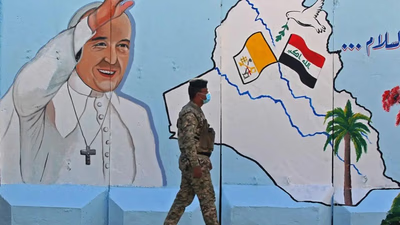
Understanding the export landscape in Iraq requires thorough market research to identify demand, competitors, and trends. Exporters must navigate cultural, economic, and regulatory factors that influence their strategies. Key documentation includes commercial invoices, packing lists, and customs declarations, all of which must comply with Iraqi regulations. The strong trade relationship between Iran and Iraq highlights the potential for profit in this market. Customs procedures vary by product category, necessitating consultation with customs brokers for compliance. Additionally, exporters should be aware of specific product standards and certifications required in Iraq. A reliable logistics provider is essential for smooth transportation and customs clearance. Payment methods such as letters of credit or bank transfers are common, and exploring export financing options can mitigate risks.
Understanding Iraqi cultural norms is crucial for effective communication and relationship-building with local partners. The political structure is complex, with significant power held by provincial councils alongside the central government in Baghdad. The economy is heavily reliant on oil exports, supported by international financial assistance. Staying informed about legal regulations and security conditions is vital for successful operations in Iraq. Establishing local partnerships can enhance market insights and facilitate business connections.
-
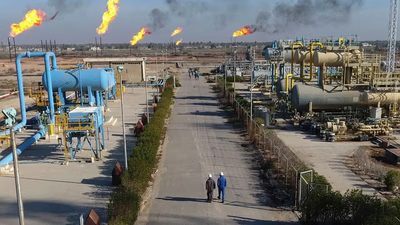
Iraq"s economy is heavily reliant on oil, contributing approximately 95% of its total revenues. Despite being one of the largest oil producers globally, the country faces significant economic challenges due to political instability, corruption, and inadequate infrastructure. The reliance on oil exposes Iraq to global price fluctuations, hindering economic diversification and growth. Efforts to develop sectors like agriculture and tourism have seen limited success, with unemployment rates remaining high, particularly among youth. The government struggles to provide essential services and create jobs, exacerbating social inequalities. International assistance from organizations like the IMF and World Bank aims to address these issues through governance reforms and improved public financial management. However, bureaucratic hurdles and security concerns continue to impede foreign investment in critical sectors such as energy and construction. Iraq"s fiscal situation is strained by its dependence on oil revenues, leading to budget deficits and a high public debt-to-GDP ratio. Reconstruction efforts post-ISIS have been initiated but face challenges that slow progress towards sustainable economic development.
-

Customs clearance in Iraq begins with submitting a customs declaration form via the Automated System for Customs Data (ASYCUDA). Importers must provide detailed information about the goods, including description, quantity, value, and country of origin. Certain items may require import licenses or permits from Iraqi authorities, which must be obtained prior to importation. Essential documents for clearance include a commercial invoice, packing list, bill of lading or airway bill, certificate of origin, and any necessary licenses. Fees associated with customs processing can vary based on the goods" nature and value. Once all duties and fees are settled, goods are released for transport within Iraq. However, navigating customs can be complex due to varying laws across provinces and potential security issues. Exporters must also be aware of cultural contexts and trade regulations that differ between regions.
Documentation requirements may change over time; thus, staying informed is crucial. Consulting local experts or institutions can facilitate smoother transactions but may involve bureaucratic challenges and costs. The customs authorities assess the value of imported goods based on transaction values and applicable tariffs using the Harmonized System (HS) for classification. Inspections by customs may occur to ensure compliance with regulations. "
-
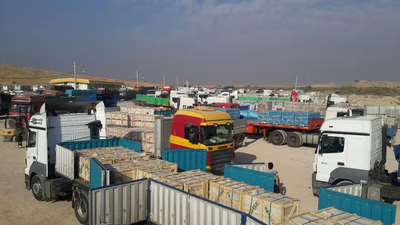
Iraq"s transportation infrastructure is primarily road-based, with trucks being the main mode for goods movement across its extensive network. While rail transport exists, it mainly serves passengers, with limited freight capabilities. International Transport Group specializes in facilitating cargo transport to Iraq, offering services from loading at the origin to delivery at the destination. The most efficient method involves direct loading in the country of origin and shipping via standard trucks. Additionally, goods can be transported through Iranian border customs terminals before entering Iraq. River transport remains relevant, especially for bulk and agricultural products in southern regions. Pipelines are crucial for oil and gas transport, significantly impacting Iraq"s economy. Sea transport through ports like Umm al-Qasr is vital for international trade, while airfreight from various international airports enhances the speed of shipping high-value items. Despite challenges such as sanctions and historical conflicts affecting industrial growth, opportunities exist for Iranian traders in sectors like health tourism and technical services.
-

Iraq"s geography significantly influences its cultural and linguistic diversity. The Tigris and Euphrates rivers provide fertile land, shaping agriculture and settlement patterns. This region, historically a crossroads of civilizations, fosters cultural exchange. Iraq"s population of approximately 40 million speaks Arabic and Kurdish as official languages, with various ethnic groups preserving their unique dialects. The country is rich in history, often referred to as the "cradle of civilization," home to ancient civilizations like the Sumerians and Babylonians. Iraq"s diverse landscapes include lowlands, deserts, and mountainous areas, contributing to its rich cultural heritage. The literacy rate ranges from 60% to 70%, with a significant Muslim population practicing various religious traditions. Iraq"s historical ties with neighboring regions have influenced its culture and trade dynamics.
-
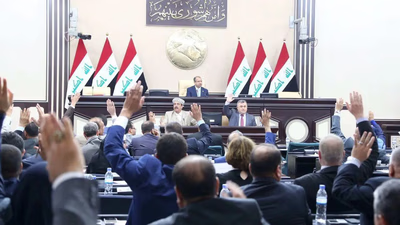
Iraq"s investment laws aim to attract both domestic and foreign investments, fostering economic growth and a conducive business environment. Key legislation includes Investment Law No. 13 of 2006 and its amendments, which offer incentives such as tax exemptions, customs duty waivers on machinery, and land allocation for projects. The laws encourage technology transfer, job creation, and the protection of investor rights while expanding Iraq"s export capabilities. Dispute resolution mechanisms are in place through local courts or international arbitration. Specific sectors like oil and gas have tailored regulations overseen by relevant ministries. Foreign investors benefit from various incentives including insurance provisions, stock exchange participation, long-term land leases, and tax exemptions for up to ten years. The National Investment Commission (NIC) plays a crucial role in promoting investment by providing necessary information and facilitating processes.
However, certain restrictions apply to investments in oil extraction, banking, insurance companies, and land acquisition for non-Iraqis. The Investment Law encompasses diverse sectors such as industry, agriculture, tourism, housing, infrastructure, and services while allowing various investment forms like joint ventures or acquisitions.
-
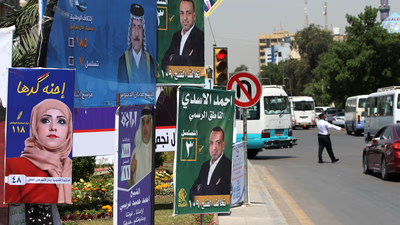
Exporting products to Iraq requires compliance with specific regulations, including labeling in Latin and Arabic. The Iraqi Standardization Institute mandates these labels for goods, particularly from Iran. Failure to meet these requirements can lead to customs rejection, causing significant losses for exporters. Trade routes between Iran and Iraq include both formal and informal customs points, with key locations such as Bashmaq and Parviz Khan Customs facilitating the majority of exports. Understanding the cultural and political landscape is crucial for successful trade, as Iraq"s diverse ethnicities and historical challenges impact business operations. Despite its potential as a lucrative market, exporters must navigate instability and ongoing political issues. The reconstruction efforts in Iraq present opportunities for foreign traders, particularly in sectors like construction and energy, where Turkey has established a strong presence. However, the complex socio-political environment necessitates careful planning and local knowledge to ensure successful market entry. "
-
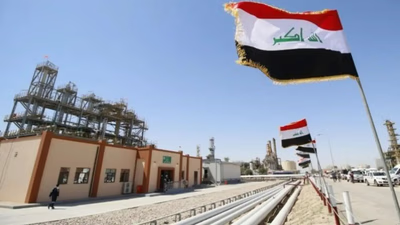
Iraq"s economy is heavily dependent on oil exports, which influences the demand for non-oil goods. Exporters must conduct thorough market research to assess product demand, competition, and potential sales volume in Iraq. Understanding consumer preferences and purchasing power is essential for determining profitability. Compliance with trade regulations, customs duties, and taxes is crucial for successful exporting. Currency exchange rates can affect pricing strategies, so establishing clear payment terms and mitigating risks like delayed payments is important. Political stability and security conditions also impact the business environment in Iraq. Adapting products to local preferences can enhance appeal and profitability. Since 2003, Iraq has been a significant trading partner, with Iran being a major exporter of non-oil goods such as food items, industrial parts, and health services.
For small to medium-sized companies, indirect exporting through intermediaries is often recommended. Competitive pricing based on local market analysis is vital for success in Iraq"s diverse market landscape.









